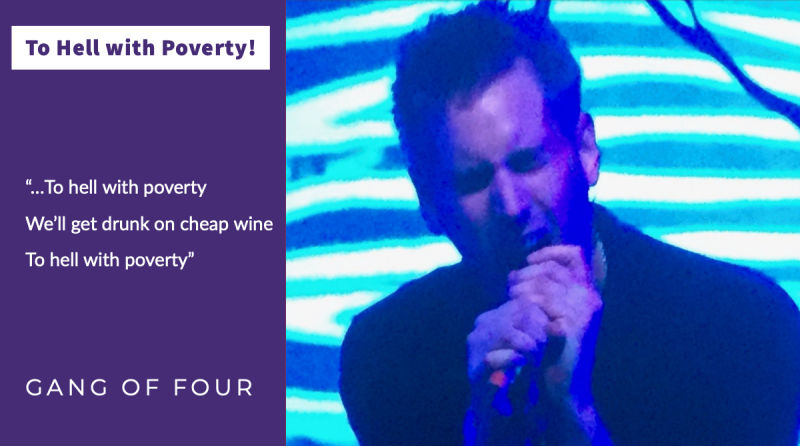13th January 2018 | By Simon Duffy
Inequality feeds a false sense of superiority on the part of the powerful.

I wrote this blog for The Equality Trust and as a contribution to the international Day of Action on 25th January 2018.
Philosophers know that when you start talking about equality you can quickly get in a muddle. The truth is that we’re all different AND we’re all equal. In fact we’re all wonderfully different and without those differences our world would be a stale and deathly place. But we’re also fundamentally equal - which means we all matter, we all share the same fundamental value, each and everyone of us. In one sense equality means recognising that every single person, with all their differences, contributes to making the world a beautiful place.
Difference and equality feel like they are in conflict because we confuse equality with sameness; we focus on some particular variable aspect of our humanity and then we are tempted into promoting our self-worth by treating that difference as the most important measure of our self. Kids want to be the tallest, adults want to be the richest and football teams want to have most points at the end of the season.
We like to win - however meaningless the game.
And, of course, as soon as someone starts to win then someone else must inevitably lose. As the great Billy Bragg sings:
Just because you're better than me
Doesn't mean I'm lazy
Just because you're going forwards
Doesn't mean I'm going backwards…
This is the reason that Dante made Pride the First Deadly Sin. If you really believe you are better than other people then you are not only kidding yourself but you will often start to harm other people. You may be tempted to fix the rules of the game so that you’ll keep winning; you may encourage others to believe that they don’t count, that they’ve got nothing to offer and that you are entitled to your supposed superiority.
Game-fixing and toxic inequality is particularly rife when it comes to the distribution of the three great social forces: money, power and fame. The more a society fixates on any of these values then the more vicious that society will become and the more likely that inequality in that variable will increase.
Inequality begets inequality.
Inequality in money is the most obvious example.
If there’s a lot of inequality in money then those with lots of money gain many things - not just extra power and resources, but also the delusion that they are better than other people - combined with a gnawing anxiety that those advantages could be taken away from them. The greater the inequality the greater the sense you have have much to lose and the greater the temptation to fix the game to perpetuate your advantage. So the rich increasingly believe they deserve what they have and they organise society to protect and increase their advantage; to buy influence they buy or bribe the powerful. Injustice begets injustice. Sadly the natural result of this toxic inequality is not that people eventually wake up, get over themselves and start to share things more fairly. Inequality distorts the values of everyone.For those in the middle it is much easier to blame the poor for society’s problems than to challenge the rich. Even worse, most of the poor themselves accept this distorted vision; they rarely reject the values that are imposed upon them, they rarely organise and fight back. Blatant nonsense about benefit scrounging, fraud by disabled people, the costs of immigration or the European Union can be found as much amongst the oppressed as amongst those who oppress them.
To simplify, in the form of a Haiku, it seems that the normal pattern is:
The rich blame the poor
The middle apes the rich and
The poor blame themselves
But there is hope.
Organisations like The Equality Trust hold out a torch and help us see what a self-destructive trap income inequality has become. We can start to see how income inequality has been exploited and inflated to the disadvantage of society as a whole. We can start to identify the disciplines that are required for people to live as equal citizens, welcoming difference, not seeking to exploit or abuse others.
It is clear today that even a relatively modest correction in income inequality would lift millions out of poverty and deprivation. Plato recommended that the richest should get no more than 5 times what the poorest get. As a beginning, this ratio would transform society and radically improve our society.
It’s also exciting to see the emergence of organisations like Acorn - local people self-organising to protect their social rights, hold landlords to account and fight poverty - or Citizen Network - an international community to promote equal citizenship for all. It is possible to reimagine our world and we can organise to make that vision real.
It is time to think start thinking straight and time to challenge the unacceptable acceptance of inequality. In the words of the Gang of Four:
To hell with poverty!